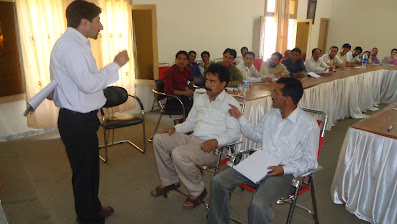Mentoring
The term mentoring is defined as a process where an experience a person guides to support and develop a beginner. Throughout the history of professional development programs in education, mentoring has played a key role in developing the beginners and enhanced their skills to be applied in workplace. In the context of teaching and learning, mentoring is a relationship between experienced educators and novice teachers, in which the educators as mentor guide, coach, plan, observe, provide feedback and reflect on their own and novice teachers' learning.
Mentor training plays an important role in mentoring novice teachers. Training impacts the mentors on two broad themes such as understanding the role of the mentor and changing mentoring practices. Regarding the understanding of the mentor’s role, through the training, mentors equip themselves with the skills of providing feedback, creating opportunities for learning, and role modeling. After going through the training, mentors realize that their role is of complex nature of developing knowledge and skills of novice teachers rather than a merely supportive role.
This realization leads mentors towards reflection on the impact of mentoring on novice teachers’ performance. Along with understanding the role of the mentor, the impact of training on mentors is the changed practices of mentoring such as creating an enabling environment for learning, developing expectations, exchanging feedback, encouraging and directing towards professional development. Mentor training assists them to provide conscious support to novice teachers. Through the training, the mentors became mindful of the link between support and relationship with the novice teachers developing a shared understanding towards achieving desired outcomes.
A collaborative attitude emerges from the mentor training were the mentors
attempt to plan together and work together with the novice teachers leading to
a shared professional journey. The more changed practices as a result of mentor
training include practical aspects such as being aware of how and what should
be served to novice teachers so that they will have a rich experience from the
mentoring program. In short, the mentor
training benefits by making them aware of relational, developmental, and contextual
elements of the role of mentor.

